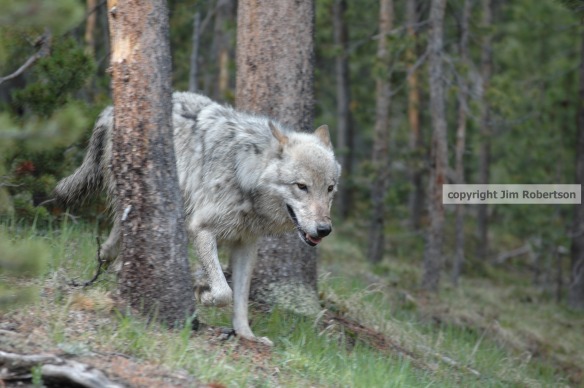The study by the National Center for Ecological Analysis and Synthesis found that U.S. Fish & Wildlife Service’s proposal to delist the animal from the Endangered Species Act is “not well supported by the available science,” according to a statement from the University of California-Santa Barbara, which houses the center.
The proposal “was strongly dependent on a single publication, which was found to be preliminary and not widely accepted by the scientific community,” according to the statement.
The authors — who at the administration’s request did a peer review of the science behind the wolf plan — said additional research is needed before the administration can decide whether to delist the species or keep it on Endangered Species Act.
The Fish & Wildlife Service turned to the California center for an objective scientific analysis after encountering a barrage of criticism from conservationists and scientists whose research was used in writing new wolf rules. The government had no role in picking the scientists who did the study.
In response to the findings, the Fish & Wildlife Service decided to once again seek public input before issuing final wolf rules. The previous public comment period ended in December and the administration planned to issue a final rule this year.
Reopening public comments is a sign that the administration is rethinking its position.
“Peer review is an important step in our efforts to assure that the final decision on our proposal to delist the wolf is based on the best available scientific and technical information,” Fish & Wildlife Director Dan Ashe said in a statement. “We are incorporating the peer review report into the public record for the proposed rulemaking, and accordingly, reopening the public comment period.”


No comments:
Post a Comment